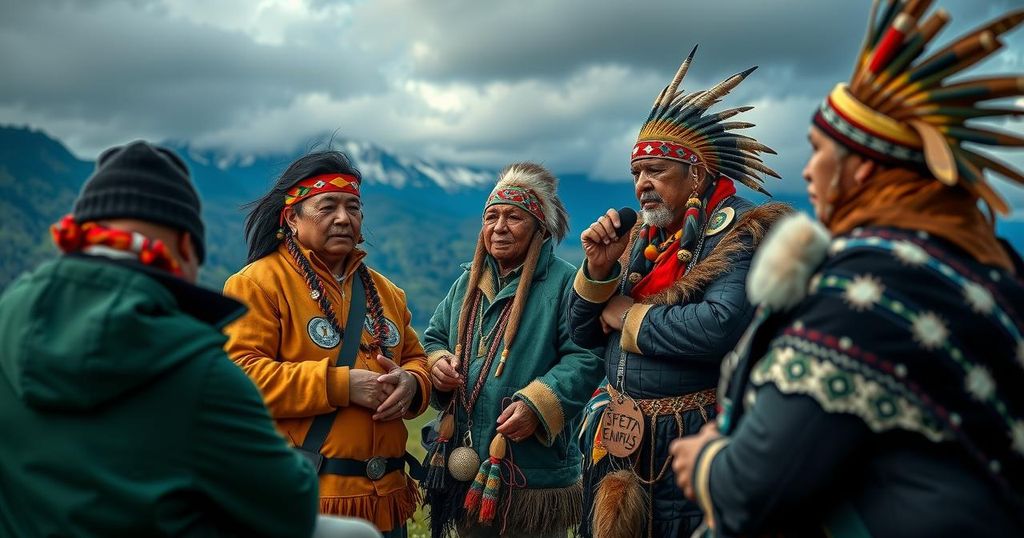Indigenous peoples highlighted the severe impacts of climate change at COP29 in Baku, Azerbaijan, sharing stories of environmental degradation and advocating for the importance of their traditional knowledge in combatting global warming. Their testimonies demonstrate both the challenges they face and the solutions they contribute to addressing climate change, emphasizing the necessity for their inclusion in climate discussions.
At COP29 in Baku, Azerbaijan, Indigenous peoples raised their voices regarding the urgent impacts of climate change on their communities. Sharing experiences of rising sea levels, deforestation, and contaminated water, they highlighted the dual nature of their participation: sharing hardships and presenting sustainable solutions grounded in traditional knowledge. This occasion also emphasized the critical role Indigenous communities play in combatting climate change, given their historical stewardship of natural resources and ecosystems. Indigenous participants hail from diverse regions, bringing unique perspectives on climate change’s effects. For instance, a representative from Yakutsk lamented the decrease in snow, saying, “When I was a child, we had a lot of snow. We played in it. We made labyrinths with it. Now we don’t have much snow.” Similarly, Mapuche youth voiced concerns about water contamination affecting Ranco Lake in Chile, stating, “As a young Mapuche, I denounce the contamination of my home of Ranco Lake in southern Chile. I live on the third largest lake, on an island in the middle of it, and we do not have drinking water.” Many Indigenous representatives noted holistic connections with nature that inform their approaches to conservation. For example, a Kichwa Otavalo from Ecuador remarked, “We have a connection, like an energy, with the lakes, with the water in general. We have a connection with fire, we have a connection with the air and other things that you in the Occident don’t have a connection with. So, we have solutions for climate change.” Addressing the dire repercussions of climate change, a Melanesian spokesperson from Vanuatu described how rising sea levels jeopardize their food security and contribute to gender-based violence. He remarked, “Sea level rise is eating us up. It threatens our food security, contaminates our water source, infrastructure is destroyed and the increase in gender-based violence goes sky high.” Furthermore, testimonies from the Northern Arapaho, Tembé, Sherpa, and other Indigenous groups highlighted widespread droughts, deforestation, and displacement due to flooding. Their responses emphasized the immediate need for urgent climate action and recognition of their rights and knowledge systems as invaluable in global efforts to mitigate climate change.
The participation of Indigenous peoples at the COP29 climate talks in Baku represents a critical intersection of their unique experiences and the global discourse on climate change. As communities that have historically faced the brunt of environmental degradation and climate impacts, Indigenous representatives seek to advocate for their rights and contributions to sustainable practices. Their engagement underscores the importance of integrating traditional ecological knowledge within climate action frameworks, emphasizing that the fight against climate change requires diverse perspectives and solutions tailored to local realities.
In summary, the stories and insights shared by Indigenous peoples at COP29 reflect both the immediate challenges of climate change and the potential for sustainable solutions tied to traditional knowledge. Their commitment to conservation and community resilience offers vital lessons in the global fight against climate change, stressing the urgent need for collaborative efforts that honor Indigenous rights and practices in environmental governance.
Original Source: www.sfgate.com






